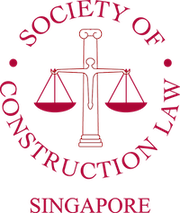failing to consider all evidence leading to unsustainable conclusions and a reliance on computer software techniques rather than the application of expertise to the facts and evidence. For RICS members of the SCL specifically, this was all emphasised by reference to the RICS Practice Statement for “Surveyors acting as expert witnesses – A guide to best practice” which outlines a) best practice and b) declarations that should be included within any RICS member’s expert report.
Michael then outlined some typical procedures in the life of an appointment including a) the appointment itself (and the importance of obtaining clear instructions), b) preparing the report, c) normal rules of procedure including meeting the other side’s expert, inspections, sharing information, concurrent expert evidence (“hot tubbing”) and advising council. An outline of a Single Joint Expert’s duties was followed by Michael's views on the potential problems involved with such an appointment as opposed to each party instructing their own expert.
Michael then outlined some typical procedures in the life of an appointment including a) the appointment itself (and the importance of obtaining clear instructions), b) preparing the report, c) normal rules of procedure including meeting the other side’s expert, inspections, sharing information, concurrent expert evidence (“hot tubbing”) and advising council. An outline of a Single Joint Expert’s duties was followed by Michael's views on the potential problems involved with such an appointment as opposed to each party instructing their own expert.
|
|
|
Michael concluded with a discussion of the English Supreme Court decision earlier this year in Jones v Kaney, which removed an expert’s immunity from liability. Michael gave his views on the changes that may follow this decision, in particular the increased cost and reduced availability of insurance to cover an expert's activities during his or her appointment.
Chairing the event was Mr. Christopher Nunns, Chairman of the SCL, who contributed to the customary Question and Answer Session using his own experiences as an expert as well as ably chairing the discussion on the topic of experts being registered. The evening ended with the presentation of tokens of appreciation.
Chairing the event was Mr. Christopher Nunns, Chairman of the SCL, who contributed to the customary Question and Answer Session using his own experiences as an expert as well as ably chairing the discussion on the topic of experts being registered. The evening ended with the presentation of tokens of appreciation.





